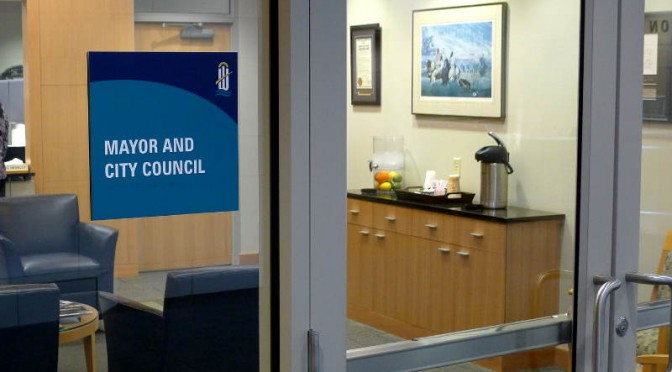Tag: Government transparency
-

Wichita tourism plan should include spending disclosure
As part of a plan for spending a dedicated tax revenue stream, the Wichita city council should include disclosure of spending. It would fulfill a campaign promise.
-
WichitaLiberty.TV: Sin taxes, and what the Kansas Legislature doesn’t want you to know
Sin taxes, and what the Kansas Legislature doesn’t want you to know.
-

WichitaLiberty.TV: Flipping in Wichita, price of sin going up, and what your legislature wants you to know
In Wichita, historic value is gone in a flash, a flip-flop on drivers permits, and does the city really believe in transparency or was it just a way to get votes? Then, let’s stop calling a vice a sin, and what does the Kansas Legislature really want you to know?
-

Availability of testimony in the Kansas Legislature
Despite having a website with the capability, only about one-third of standing committees in the Kansas Legislature are providing written testimony online.
-
Transparency in the Kansas House of Representatives: Some success
Last week the Kansas House of Representatives took votes on several amendments to its rules regarding transparency and understandability of the legislative process. Of the three most important amendments, two passed.
-

WichitaLiberty.TV: Radio show host Joseph Ashby
In this episode of WichitaLiberty.TV: Radio talk show Joseph Ashby appears to talk about transparency in the Kansas Legislature and the State of the City Address for Wichita.
-

This is how much the Kansas Legislature wants Kansans to know
This is so simple. It is almost without cost. It would have great benefit.
-

Wichita loan agreement subject to interpretation
In 2009 the City of Wichita entered into an ambiguous agreement to grant a forgivable loan, and then failed to follow its own agreement. Worse yet, there has been no improvement to similar contracts. Such agreements empower the city to grant favor at its discretion.
-
A chance for Wichita to embrace transparency
Promises of transparency were made during the recent Wichita sales tax campaign. If the city cares about government transparency, the city should implement its promises, even though the tax did not pass.
-

Year in Review: 2014
Here is a sampling of stories from Voice for Liberty in 2014.
-
Sedgwick County meeting video, not for everyone
Trying to view video of Sedgwick County Commission meetings could be frustrating for many citizens.
-

This week, Wichita has a chance to increase government transparency
The Wichita City Council can decide to disclose how taxpayer money is spent, or let it remain being spent in secret.